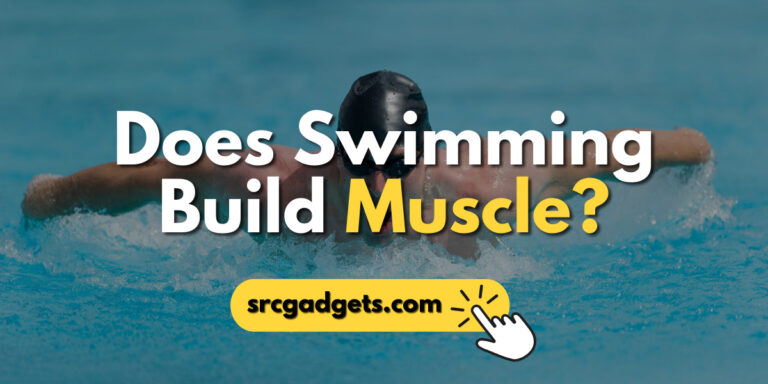Does Swimming Make You Taller? | Swim Your Way to Height
Swimming is a great way to keep your entire body healthy and active, but did you know that it also has the power to help increase your height? The logic behind this phenomenon is quite simple.
When you swim laps in the pool, you are constantly stretching out your spine as well as pressing down on the ground with both feet. This stretches your vertebrae and elongates them – which can lead to an increase in height over time.
When we swim, the water acts as a resistance to our movements, strengthening our muscles in places that are not used often when we walk or run. This gives us a good posture over time! Therefore, swimming helps in increasing your height.
If you’re looking to grow a few extra inches, swimming is the way to go. Swimming has been proven to help people’s height increase, and it doesn’t take much time either! All you have to do is swim for 30 minutes per day for 14 days straight. But did you know that activities outside the pool, such as jumping rope, can also play a role in enhancing your swimming abilities?
This article will talk about how swimming adds inches to your frame and why it is so good.
Speaking of triathlons, have you ever wondered about the difference between a regular triathlon and the daunting Ironman race? While both involve swimming as a core segment, they differ in many aspects, from their historical origins to the physical demands placed on athletes. Dive deeper into this topic by reading our in-depth article on What’s the Difference?

Shortest Olympic Swimmer
The shortest Olympic swimmer is Michelle Ford (1.59m). She is from Australia, and she won the gold medal in 800-meter freestyle back at the 1980 Summer Olympics in Moscow.
There are many benefits to swimming, but people might not know how it can actually give you an advantage if you’re taller! When it comes to swimming, having a few extra inches can make a difference in your reach and stroke efficiency.
So, let’s take a closer look at this aspect and see how it can complement your athletic endeavors.
Swimming, both in competitive sports and recreational activities, offers a unique set of advantages. Whether you’re aiming to gain height or improve your overall physical performance, the pool holds secrets worth exploring.
One significant factor to be mindful of is the consumption of low-quality processed food. Such a proper diet, rich in empty calories and lacking essential nutrients, can undermine the body’s ability to reach its full growth potential.
Swimming acts as a height booster. Let’s see how!
This has been proven by an experiment in Finland where children who swam for just 30 minutes every day increased their height and bone mass significantly within two months. The Finnish researchers believe this could be because regular physical activity like exercise helps strengthen bone health and muscle systems, particularly when young bodies are still growing.
Therefore, short kids should try out the sport of competitive swimming! They may end up being quite tall someday if they dedicate themselves to practicing regularly.
Average height of Female Olympic swimmers
The average height of female Olympic swimmers in swimming is about 172.27 cm.
The average height of female Olympic swimmers in the United States is 173.34 cm.
In the pursuit of a good and healthy lifestyle, many individuals turn to various forms of exercise to not only stay fit but also potentially unlock hidden growth potential. One such activity often in question is swimming. The connection between swimming and a healthy lifestyle is a topic that has piqued my curiosity for years.
There are more male Olympic elite-level swimmers than women in the US, but their heights are not as different across an age range: The average height for males between ages 12 and 17 years old was 183.08 cm while females were 170.83cm; Males 18 to 29 years old averaged 188.31cm while females 184.19cm.

Men may have a slight advantage over a woman when it comes to swimming at shorter distances because they usually have larger lung capacity which can help them swim faster through fewer strokes per lap because of the water resistance against their bodies.
Average Swimmer Height
The average swimmer’s height in the United States is 173.34 cm, which means that swimming improves your overall health and makes you grow taller.
Does Swimming Increase Height?
In the fascinating world of swimming, one often wonders, “Why are swimmers generally so tall?” While it’s true that genetic growth potential plays a pivotal role in determining one’s ultimate height, the sport of swimming can potentially help individuals reach their maximum genetic growth plate.
The reason for this has to do with the pressure of water on swimmers’ heads and backs in swimming, which in turn results in increased height growth.
This phenomenon was first observed by Dr. Wilhelm Witte (1877-1961), who found that people immersed themselves under four meters of water would increase up to one inch in height due to fluid pressing down on their body from all directions, including upwards against the skull and spinal column as well as downwards into the legs below the knees or waistline while swimming.
Interesting. Isn’t it?
Studies have shown that swimming is a full-body workout that engages muscles you might not use as much during everyday activities like walking or running. When you swim, the water’s resistance challenges your muscles, helping to strengthen and tone them. Over time, this can lead to increased muscle mass and improved body composition.
Swimming engages various muscle groups and encourages calorie expenditure, potentially aiding in weight management and muscle development. While it might not be a magic solution for shedding excess fat, the combination of cardiovascular exercise and muscle strengthening through swimming can contribute to a more balanced and healthy body.
Swimmers are amongst the tallest people in America and can reach heights of up to seven feet tall.
Why?
The answer may be surprising: a lot of it has to do with buoyancy. Being growing taller makes you more buoyant, so if your head were just barely always submerged underwater, it would help keep you afloat better than being shorter might… this means that swimmers benefit from being on the taller side when they’re competing for speed or distance!
Does Swimming Increase Groth Hormone?
In the quest to unravel the mystery of whether swimming increases height, the role of growth hormone also emerges as a key player. Growth hormone, commonly known as GH, plays a crucial part in our growth and development throughout our lives. When it comes to swimming, this aerobic exercise may stimulate the secretion of human growth hormone in the body, potentially contributing to vertical bone growth.
During a vigorous swim, the body experiences various physiological changes, one of which includes the release of growth hormone. This hormone is responsible for promoting growth and regulating several essential functions within the body. While swimming alone may not be a magic solution for dramatic height gains, it’s believed to support overall growth and well-being by optimizing the production of growth hormones.
So, while some athletes have their growth stunted by puberty due to rigorous sports training schedules, many top competitive swimmers will grow even faster because water offers known benefits for muscle development.
Which sport makes you Grow taller?
You might be wondering which sport makes you grow taller. Funny story: it’s swimming!
It is a well-known fact that immersion in water makes muscles more flexible, which in turn increases the height of the body by as much as two inches.
In addition to this effect, swimmers are also less likely to suffer from compression injuries and back pain because they have strong core muscles that support their spine.
Combined with all these benefits, it becomes clear why athletes who compete for prolonged periods at high levels often choose swimming over other sports, such as track or basketball, where being naturally tall may be an advantage but can come with a greater risk of injury.
Here are a few more sports that can make you grow taller:
- Gymnastics will make you taller because it builds the back muscles that help provide a strong and flexible spine; gymnasts are often very agile in their own bodies, allowing them to move with ease.
- Ice skating is another sport that can make one grow taller due to its focus on leg strength and balance – this causes one’s core to become stronger, which helps retain better posture over time while increasing height naturally.
The more stable your body becomes through these sports, including swimming and weight lifting, the less likely you’ll be injured when playing other physical games or participating in athletic activities like skiing or horseback riding later down the line!
What makes a good swimmer?
Whether you are a new swimmer or an experienced one, it’s important to know what makes a good swimmer. A lot of swimmers focus on the physical demands of being in the water and neglecting technique. The best way to become a better swimmer is by improving your skillset with drills and swimming workouts.
In the realm of aquatic prowess, a fundamental aspect that often sets exceptional swimmers apart is their cardiovascular fitness. A good swimmer doesn’t merely glide through the water with ease; they possess the stamina and endurance that come from a well-conditioned cardiovascular system. This aspect of fitness is crucial, as it directly influences a swimmer’s ability to maintain a steady stroke, regulate their breathing, and cover long distances efficiently.
Qualities such as the ability to have strong endurance and flexibility are key to success in swimming competitions. In order to have these qualities, you need to train hard so that your muscles can perform at their best when it really matters!
Have you ever wondered how the quality of your sleep could potentially affect growth, especially when paired with the advantages of swimming?
Quality sleep is a critical factor in overall growth and development. During deep sleep, the body undergoes various essential processes, such as the release of growth hormone, tissue repair, and muscle growth. When combined with the benefits of swimming, which include improved posture, flexibility, and overall fitness, getting adequate and restful sleep can further enhance your potential for growth.
So, if you’re aiming to maximize your height and overall well-being, it’s crucial to pay attention to both the quality of your sleep and your swimming routine. These important external factors can work hand in hand to help you reach your growth potential.
A good swimmer is someone who has a combination of physical and mental attributes. They have to be physically fit, but they also need the right mindset in order to succeed in competitive swimming. The qualities that make an excellent swimmer are:
It’s also possible to become a better swimmer if you’re tall enough!
This is because when people are taller, they have longer legs which means their kicks will push them further through the water than other people would achieve without those long limbs pushing on both sides of their body all at once.

This makes swimming easier for these swimmers as there is less energy needed to move around in the pool and more time spent on technique rather than power output.
However, you can also become a good swimmer if you take swim lessons and watch videos on YouTube.
Does Proper Nutrition Make You Taller?
Maintaining a healthy diet is like adding fuel to your swimming journey! Just as the water supports your maximum height-boosting efforts, the right foods can complement your swimming routine and overall well-being. So, what’s on the menu for aspiring tall swimmers?
Let’s dive into the world of foods that can make your swimming increase height more effective and enjoyable. We’re not talking about a restrictive balanced diet plan; instead, think of it as fine-tuning your adequate nutrition to maximize your potential.
Conclusion
In summary, swimming increases height and is an effective way to promote overall well-being. Regardless of your socioeconomic factors and background, swimming offers an array of benefits, including improved cardiovascular health, increased muscle strength, enhanced endurance, flexibility in the joints, and better coordination between the spine and muscles. These advantages make swimming an inclusive and empowering activity for everyone!
Good swimmers should be able to use their arms well and have strong leg muscles, which will help them kick off the wall. The swimmer must also know how to breathe correctly so they can get air at all times when underwater and not just during breaks on top of the water’s surface or out of breath. Knowing these skills is crucial if you want to become a better swimmer!

Eric Jordan
Writer | Triathlete
A writer by passion and a triathlete coach profession. In his free time, he swims, runs, cycles, and helps newbie athletes to achieve their goals.






